Contract Integrity
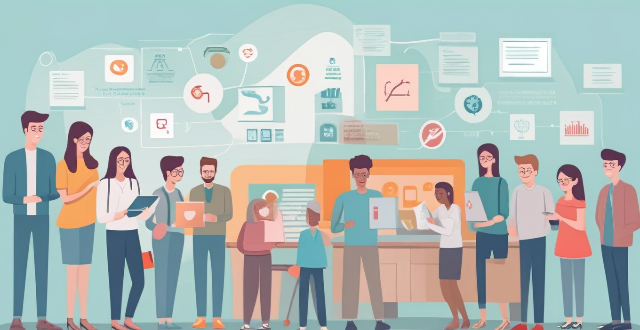
How can schools address the issue of contract cheating, where students pay others to complete their assignments or exams ?
Addressing contract cheating in schools is crucial for maintaining academic integrity. Effective measures include using advanced plagiarism detection tools, educating students on academic integrity, encouraging open discussions, providing support services, and collaborating with parents and guardians. These strategies can deter students from engaging in contract cheating and promote a culture of original work.

What is a smart contract ?
Smart contracts are self-executing contracts with the terms of the agreement between buyer and seller being directly written into lines of code, which exist across a distributed, decentralized blockchain network. They allow for transactions and the transfer or distribution of cryptocurrencies to be executed automatically without the need for a central authority, legal system, or external enforcement mechanism. Smart contracts are autonomous, immutable, traceable, and decentralized. They have various use cases such as cryptocurrency transactions, insurance claims, supply chain management, real estate transactions, gambling and betting, and legal documents. The benefits of smart contracts include efficiency, transparency, security, speed, and accuracy. However, there are challenges and considerations such as code quality, lack of legal recognition, interoperability issues, and privacy concerns.

What is the difference between a regular contract and a smart contract ?
A regular contract and a smart contract differ in terms of their **nature**, **enforceability**, **cost**, **speed**, and **transparency**. Below are the key differences between these two types of contracts: ## Nature ### Regular Contract - Legal agreement between two or more parties. - Typically written in natural language (e.g., English). - Governed by local laws and regulations. ### Smart Contract - Self-executing contract with the terms directly written into code. - Deployed on a blockchain network. - Enforced by the underlying code and cryptographic protocols. ## Enforceability ### Regular Contract - Relies on legal institutions for enforcement (e.g., courts). - May involve mediation or arbitration processes. - Penalties for breach can be monetary or involve other forms of relief. ### Smart Contract - Autonomously executes when predetermined conditions are met. - Enforcement is decentralized and automated. - Penalties for breach are typically programmed into the contract logic. ## Cost ### Regular Contract - Can be costly due to legal fees, notary services, and potential litigation expenses. - Involves overhead of paper-based record keeping and manual processing. ### Smart Contract - Generally less expensive because it eliminates intermediaries. - Costs associated with blockchain transaction fees and contract deployment. ## Speed ### Regular Contract - Time-consuming process from negotiation to signing and execution. - Settlement times can vary widely depending on the complexity of the agreement. ### Smart Contract - Faster execution once the conditions are met. - Real-time settlements possible due to automation. ## Transparency ### Regular Contract - Limited transparency; only involved parties have access to the contract details. - Requires trust in the counterparty to disclose all relevant information. ### Smart Contract - High transparency; contract code and transactions are visible on the blockchain. - Trust is placed in the immutable and verifiable nature of the blockchain.

What is academic integrity ?
Academic integrity is a fundamental principle governing the conduct of research, teaching, and learning in academic institutions. It encompasses values and ethical standards promoting honesty, fairness, respect, and responsibility among students, educators, and researchers. The goal is to maintain trustworthiness and credibility by adhering to high ethical standards. Core values include honesty, fairness, respect, and responsibility. Key aspects are avoiding plagiarism, fabrication, cheating, multiple submissions, and collusion. Violating academic integrity can lead to loss of reputation, disciplinary action, legal consequences, diminished career prospects, and ethical implications. Adhering to academic integrity promotes a fair and just academic environment.

What are the consequences of violating academic integrity principles ?
Violating academic integrity principles can lead to serious consequences on both individual and institutional levels, including academic penalties, damage to reputation, difficulty gaining acceptance into programs or securing employment, emotional distress, and potential loss of accreditation for institutions. It is essential for students to understand the importance of maintaining academic integrity to protect their personal and professional futures, as well as the reputation of their educational institutions.
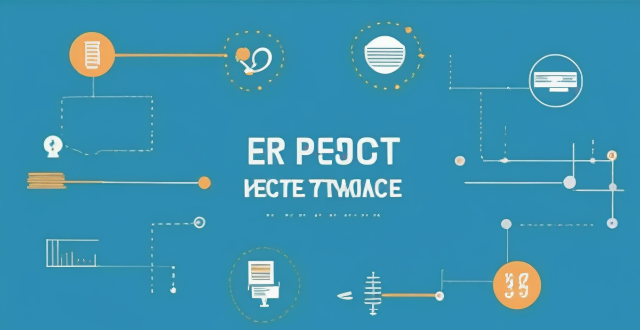
How do smart contracts work ?
Smart contracts are self-executing contracts with the terms directly written into code, operating on a decentralized blockchain network. Key features include autonomy, trustless transactions, immutability, and traceability. The working mechanism involves deployment, execution based on predefined conditions, verification through consensus algorithms, and settlement updating contract states. Benefits encompass efficiency, transparency, security, and the removal of intermediaries. Challenges include legal recognition, coding errors, and handling complex logic. Smart contracts revolutionize traditional contract law by enabling secure, automated, and transparent transactions on blockchain networks.

What are the long-term effects of breaches in academic integrity on one's career ?
The long-term effects of breaches in academic integrity can be severe and far-reaching, including damaged reputation, limited career opportunities, and potential legal consequences. It is essential for students, researchers, and educators to uphold the principles of academic integrity to ensure the success of their careers and the integrity of their respective fields.
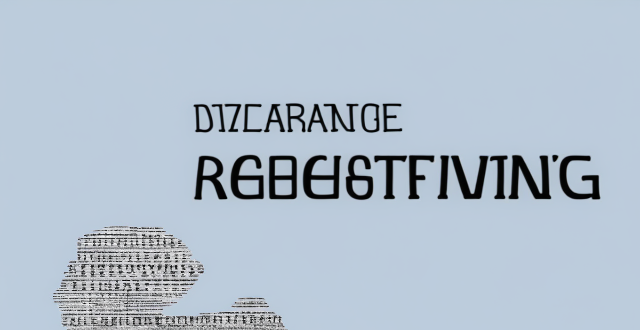
How can students maintain academic integrity in their studies ?
The text discusses the importance of maintaining academic integrity in education and outlines several ways for students to do so. It emphasizes understanding the concept of academic integrity, adhering to school policies, citing sources properly, avoiding plagiarism, being honest in assessments, respecting intellectual property rights, maintaining confidentiality, reporting incidents of misconduct, and seeking help when needed. The text concludes that maintaining academic integrity is crucial for students to achieve success in their academic pursuits and beyond.

In what ways does academic integrity relate to professional ethics ?
**Academic Integrity and Professional Ethics: An Interconnected Relationship** The concepts of academic integrity and professional ethics are fundamentally interconnected, sharing principles like honesty, fairness, responsibility, respect, and courage. Academic integrity lays the groundwork for professional ethics by instilling foundational skills such as critical thinking, research integrity, and ethical decision-making. These skills transition from academia to profession, building reputations for reliability and trustworthiness. Therefore, promoting academic integrity is crucial not only for the academic community but also for the broader professional world.

Are there any cultural differences in perceptions of academic integrity ?
The perception of academic integrity can vary across cultures due to differences in values, beliefs, and practices. In individualistic cultures, academic integrity is often viewed as an individual responsibility, while collectivist cultures place more emphasis on group harmony and cooperation. Power distance can also influence perceptions of academic integrity, with high power distance cultures being more reluctant to report instances of academic dishonesty. The concept of time can also play a role, with monochronic cultures prioritizing efficiency over quality, while polychronic cultures focus on building relationships. Attitudes towards rules and regulations can also vary across cultures, with rule-based cultures viewing academic integrity as a set of strict rules, while relation-based cultures view it as something that depends on the relationship between individuals. Understanding these cultural differences can help educators design effective strategies to promote academic integrity among diverse student populations.

How has the COVID-19 pandemic affected issues of academic integrity, especially with online learning ?
The COVID-19 pandemic has significantly impacted academic integrity in the education sector, particularly due to the shift to online learning. The increased opportunities for cheating during online examinations and plagiarism are major concerns. Difficulty in maintaining academic integrity standards, potential for misunderstandings and miscommunications, and strategies to address these challenges are also discussed.
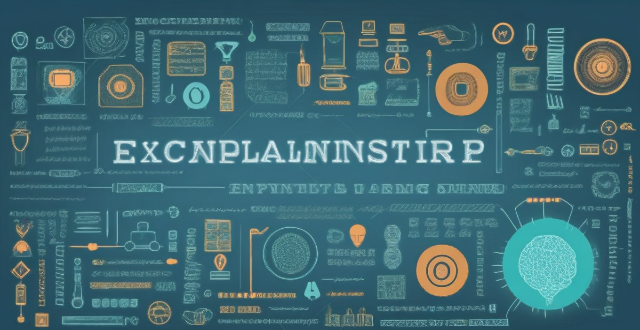
How does academic integrity relate to the concept of intellectual property ?
The text explores the relationship between academic integrity and intellectual property. It defines academic integrity as the core values of scholarly work, including honesty, trust, fairness, respect, and responsibility, which are essential in research, teaching, and publishing. Intellectual property, on the other hand, refers to legal protections that give creators exclusive control over the use of their creations of the mind. The intersection of these two concepts is discussed in terms of respect for original work, protection of ideas, promotion of innovation, and ethical considerations. Both academic integrity and intellectual property laws stress the importance of respecting original work and protecting ideas. They also promote open access and sharing of knowledge while ensuring responsible conduct of research. The text concludes that upholding academic integrity contributes to a robust system of intellectual property that benefits society as a whole.

What is the role of peer pressure in maintaining or undermining academic integrity ?
Academic integrity is a commitment to honesty, trust, fairness, respect, and responsibility. Peer pressure can play a positive role in maintaining academic integrity by encouraging ethical behavior, promoting collaborative learning, and providing support and encouragement for students. However, peer pressure can also undermine academic integrity by promoting cheating and plagiarism, disrupting collaborative learning environments, and stigmatizing help-seeking behavior. It is essential to recognize the potential impact of peer pressure on academic integrity and work to foster an environment that supports ethical behavior and discourages cheating and plagiarism.
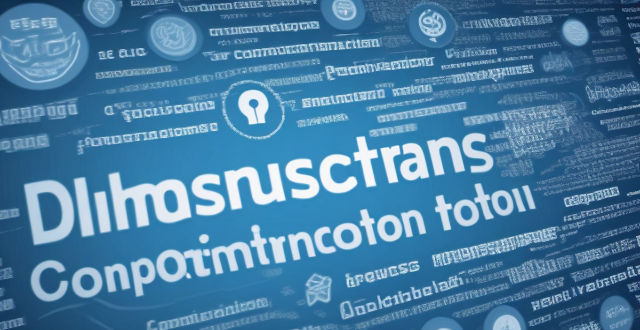
How do communication protocols ensure data integrity and security during transmission ?
The text discusses the role of communication protocols in ensuring data integrity and security during transmission. It outlines mechanisms such as checksums, sequence numbers, acknowledgments for maintaining data integrity, and encryption, authentication, and secure protocols for ensuring data security. The article emphasizes that adhering to these rules allows devices to communicate reliably and securely over networks.
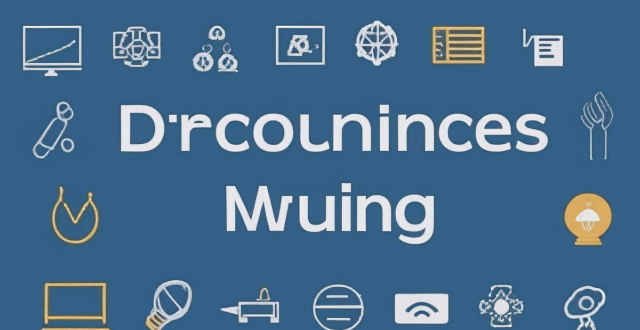
What is the difference between collaborative work and collusion in terms of academic integrity ?
The text discusses the differences between collaborative work and collusion in academic settings. Collaborative work is defined as a transparent process where individuals share ideas, resources, and skills for a common goal, distributing credit fairly and adhering to ethical standards. In contrast, collusion involves deceitful actions like plagiarism or falsifying data, aiming for unfair advantage and often resulting in severe penalties and reputational damage. The distinction is crucial for maintaining academic integrity and promoting an environment of honesty and transparency.
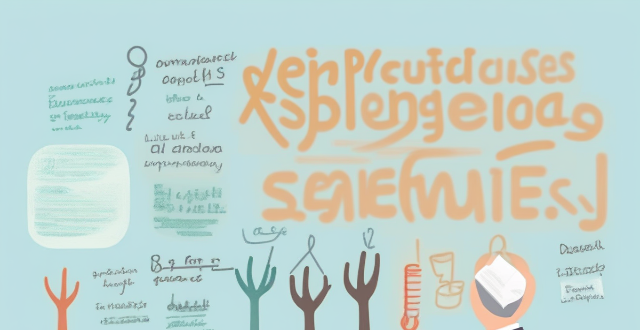
How can students with English as a second language be supported in understanding and applying academic integrity standards ?
The text discusses the importance of supporting students with English as a second language (ESL) in understanding and applying academic integrity standards. It outlines four key strategies for doing so: providing clear explanations, accessible resources, open communication, and extra support. Clear explanations should cover what constitutes academic dishonesty, the consequences of violations, and how to avoid dishonesty. Accessible resources such as glossaries, guides, and videos can help ESL students understand these concepts better. Encouraging open communication between students and instructors can address concerns and questions about academic integrity. Providing extra support through tutoring services, workshops, and peer mentoring programs can further assist ESL students in adhering to academic integrity standards.

Are there any hidden fees or contracts associated with upgrading my broadband ?
When upgrading broadband, beware of early termination fees, equipment rental costs, and installation charges. Also, understand contract minimums and auto-renewal clauses before committing.
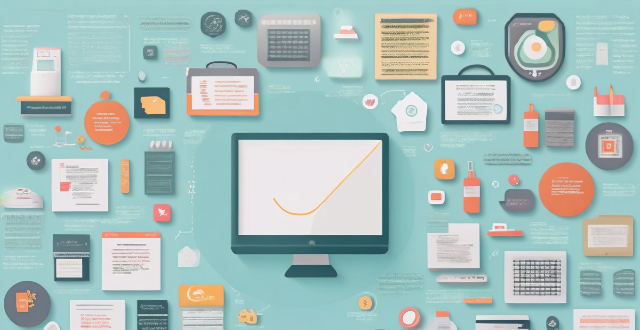
How does technology impact academic integrity, particularly regarding plagiarism ?
Technology has significantly impacted academic integrity and plagiarism in the educational world. The rise of plagiarism detection software has increased awareness and improved the quality of student work but may also lead to false positives and overreliance on technology. Evolution of writing and research tools makes information more accessible yet poses risks like plagiarism opportunities and lack of critical thinking. Social media and collaborative platforms facilitate collaboration and networking but can also contribute to plagiarism risks and distractions. It is crucial for educators to promote ethical practices while leveraging technology's benefits for learning and collaboration.
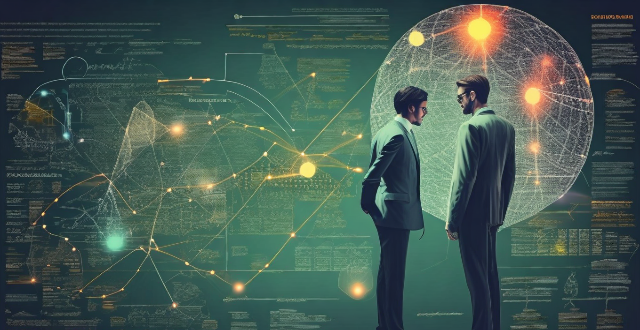
What are the potential risks associated with smart contracts ?
Smart contracts revolutionize digital transactions but pose risks like code vulnerabilities, legal uncertainties, lack of human oversight, interoperability issues, and privacy concerns. Users must understand these potential pitfalls before engaging in smart contract agreements to mitigate adverse outcomes.

What are the legal implications of using smart contracts ?
Smart contracts, self-executing contracts with terms written in code on a blockchain, raise legal questions about enforceability, jurisdiction, privacy, security, and regulatory compliance. Best practices include consulting a legal expert, clearly defining terms, considering jurisdiction, and prioritizing privacy and security.
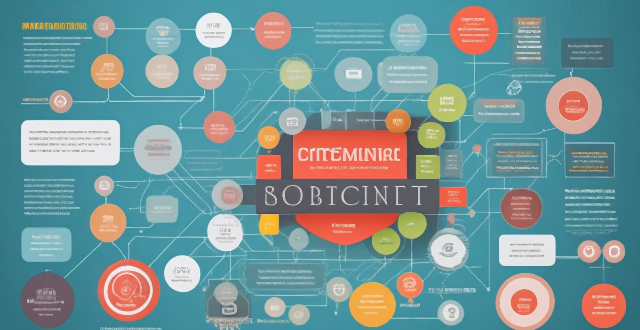
How can smart contracts be used to streamline financial transactions ?
Smart contracts can streamline financial transactions by automating processes, reducing costs, and increasing efficiency. They can automate payments and transfers, act as escrow services, create loan agreements, streamline insurance claims, and facilitate trading and exchanges of financial assets. As blockchain technology evolves, we can expect more innovative uses for smart contracts in the financial industry.
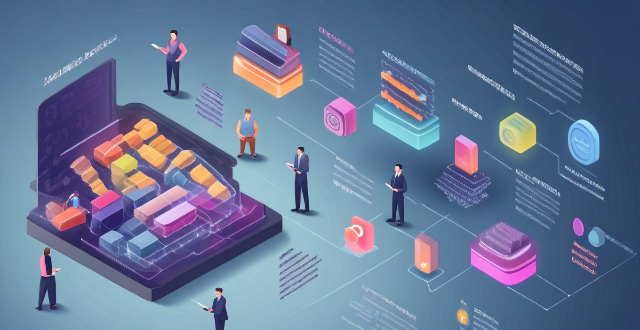
What are smart contracts in the context of blockchain ?
Smart contracts are self-executing digital agreements that operate within the blockchain, providing a decentralized and trustless system for transactions. They are created using specific programming languages and deployed onto a blockchain platform. Once conditions are met, smart contracts execute automatically, with each node verifying the process to ensure accuracy. Applications include cryptocurrencies, supply chain management, real estate, insurance, and legal agreements. However, challenges like immutability, complexity, legal standing, and privacy concerns must be addressed.

Why is academic integrity important in education ?
Academic integrity is crucial in education as it promotes honesty, builds trust, ensures fairness, cultivates respect, and develops responsibility. It prevents damage to reputation and erosion of confidence in research, while also ensuring actual learning outcomes. Educators must reinforce these principles to create a culture that values honesty and excellence in scholarship.

What are the benefits of hiring a sports agent for career management ?
Hiring a sports agent can bring numerous benefits to an athlete's career management, including negotiating contracts and deals, marketing and branding assistance, legal representation, and career planning and development. By working with an experienced sports agent, athletes can focus on their performance while leaving the business side of their careers in capable hands.
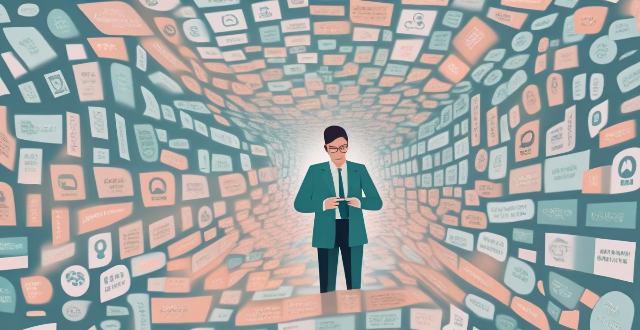
Can smart contracts be used in traditional businesses ?
Smart contracts, self-executing contracts with terms written into code, can be used in traditional businesses but have limitations such as legal issues and complexity. They offer advantages like transparency, efficiency, and security but also present challenges like lack of human touch and privacy concerns. Businesses should carefully consider their specific needs before adopting this technology.
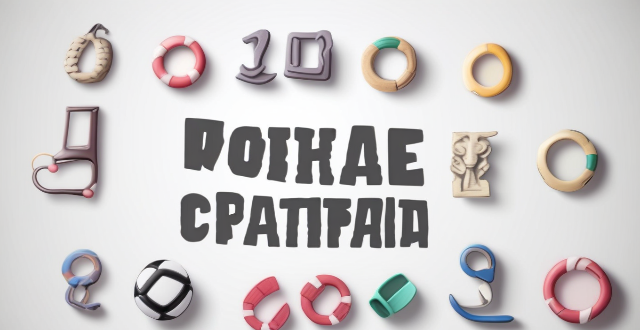
What is the impact of cheating on the integrity of sports competitions ?
Cheating in sports competitions has a profound impact on the integrity of the games. It undermines the fairness and equality that are fundamental to the spirit of competition. The various ways in which cheating affects the integrity of sports competitions include loss of trust and credibility, unfair advantage for cheating athletes or teams, harm to clean athletes, negative impact on young athletes, and damage to the reputation of the sport. To preserve the spirit of competition and ensure fair play, it is crucial for sports organizations, athletes, coaches, and fans to work together to prevent and address cheating in sports competitions.
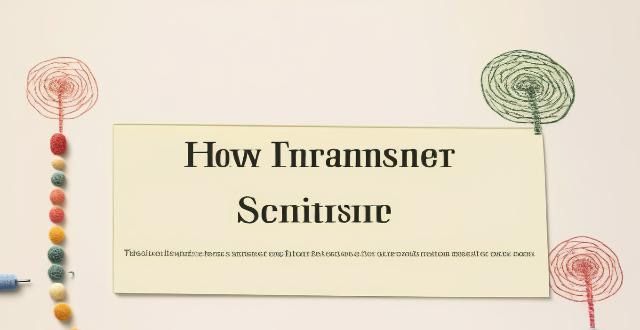
How do we ensure that climate decisions are based on sound science ?
The text discusses how to ensure that climate decisions are based on sound science. It suggests a multi-faceted approach that includes ensuring data quality and integrity, promoting interdisciplinary collaboration, and enhancing public understanding and involvement. The author emphasizes the importance of rigorous research, maintaining data integrity, encouraging collaboration between different fields, integrating traditional knowledge and local expertise, educating the public about climate science, and encouraging public participation in decision-making processes. By adopting these strategies, we can make informed decisions that effectively address the challenges posed by climate change.

Is it safer to stay in a high-rise building during an earthquake or evacuate ?
The article discusses the safety considerations for staying in or evacuating a high-rise building during an earthquake. It outlines the advantages and disadvantages of both options, such as structural integrity, risk of falling debris, and access to emergency services. The decision should be based on factors like the severity of the earthquake, the building's structural integrity, and available safety precautions. Being prepared with an emergency kit and knowledge of proper safety procedures is crucial for ensuring well-being during these events.